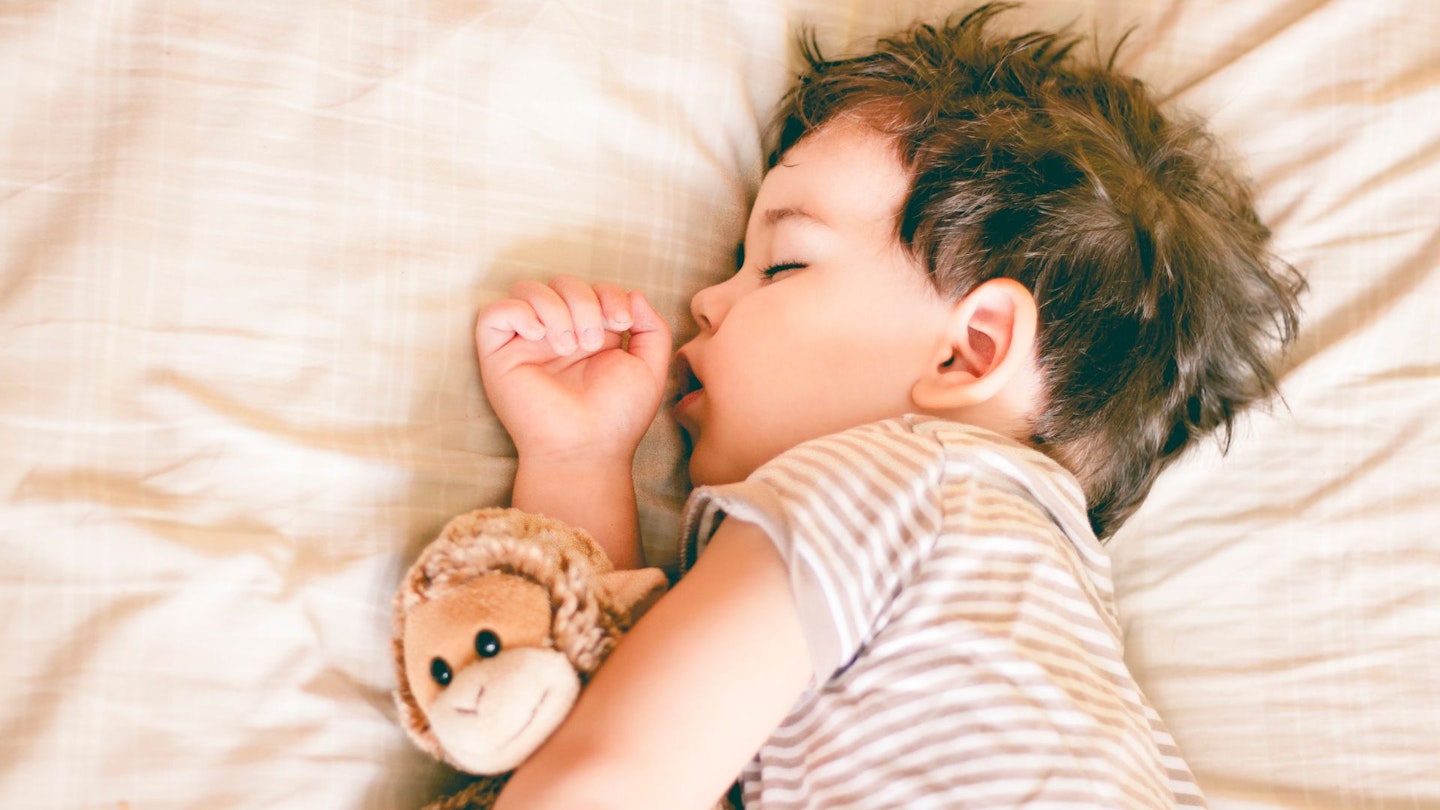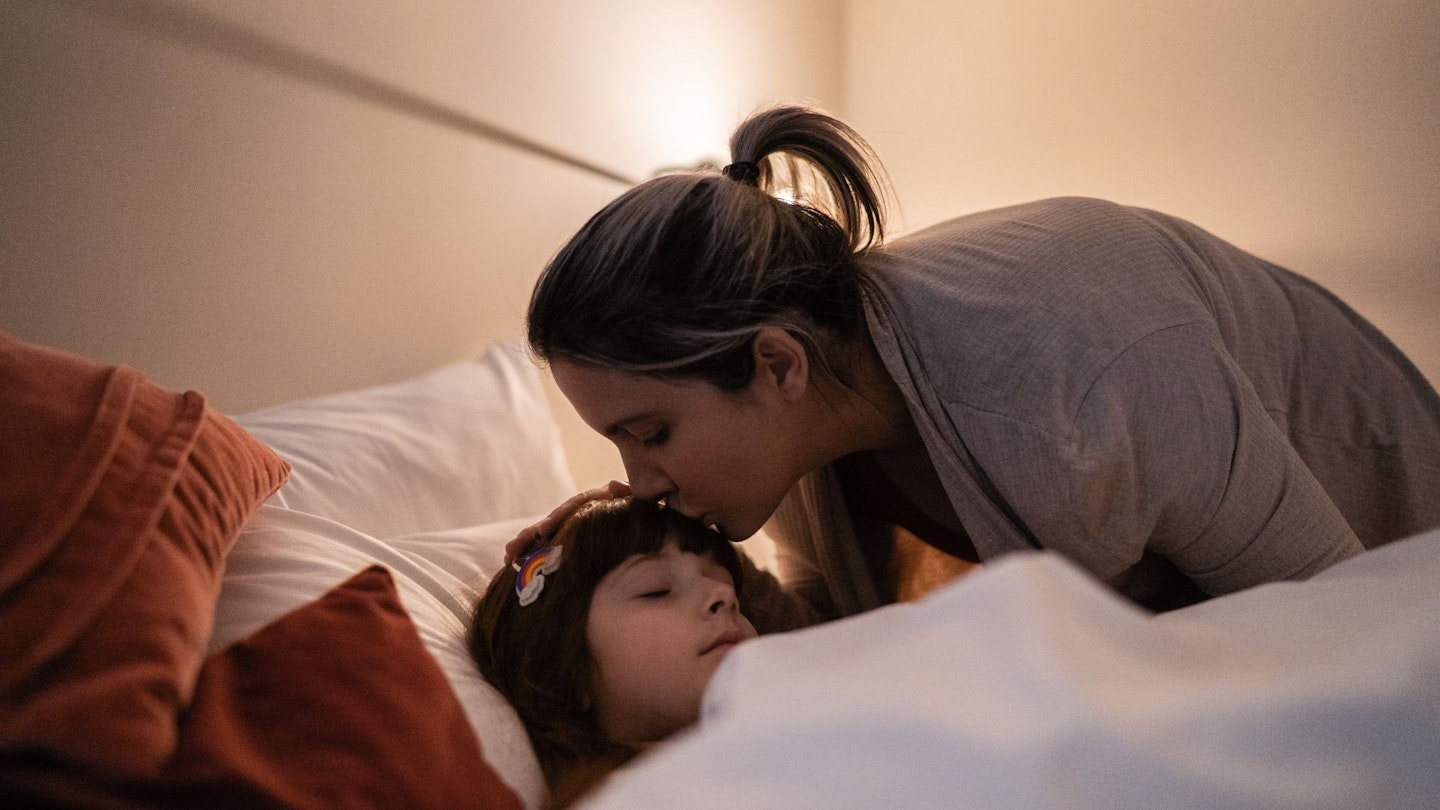There's still plenty of time to buy all your child's back-to-school essentials, but what you really need to get started on is a back-to-school sleep routine.
The summer holidays are a time when a lot of rules and bedtime structures go out of the window because there's no rush to be anywhere in the morning and the evenings are lighter and you might even have a holiday. But when those blissful six weeks come to an end, it's back to the early-to-bed and early to rise routine.
However, while most think the last few nights of the summer holidays are the perfect time to re-introduce a bedtime routine, it's actually best to start it three weeks before your child returns.
While most back-to-school days will differ across the UK, many will return on or around Monday 4th September, meaning the best time to start your new back-to-school sleep routine is from Monday 14th August.
Resident sleep expert at Time4Sleep, Dr Hana Patel shared 7 of her top tips for preparing your child for the school routine.
Start the school sleep routine at least three weeks before the new term
How early you start this routine will depend on your child and how they cope with new routines. You can start slowly, by introducing little changes at a time, but this would need to be done a few months before the term starts.
Dr Patel says: “These routine changes should include things like setting a consistent bedtime, forming a nighttime and morning routine and discussing what they’re expected to do as part of this routine. This will depend on their age but may include activities such as getting dressed or packing their school bag the night before"
A good sleep routine will ensure that your child has plenty of time to rest.
"A consistent bedtime routine is clinically proven not only to help children fall asleep quickly but it improves their overall quality of sleep too.”
Be sure of the recommended hours of sleep for your child

Children of different ages all require different hours of sleep. You can adjust bedtimes according to age and how many naps they have too.
1 - 2 years: 11 to 14 hours including naps
3 - 5 years: 10 to 13 hours including naps
6 - 12 years: 9 to 12 hours
Dr Patel explains the importance of getting the right amount of sleep for your child's age: "Children can be particularly sensitive to the amount of sleep they’re getting and its quality which can impact their behaviour and emotions."
A simple bedtime routine can start 30 minutes before sleep
Routines don't have to be long and boring. Having a set bedtime and letting your child know what they need to do before bed can help your child to understand what to expect after tea.
“A routine is as simple as a set structure of activities even just 30 minutes before the intended bedtime. This can include activities like a warm bath or reading your child a story, both of which will help your child wind down. However, it’s important to follow a routine that suits both you and your child.”
Repetition of routine is key to forming a habit
Not only is a sleep routine helpful for getting ready back to school, but a good school morning routine is equally as important. It can take a while for children to get into a good routine.
Dr Patel says: "Sticking to a set pattern of activities and events each night will help your child to settle before bed and give them the time to calm down before sleeping. Repeating this routine will help your child recognise bedtime as a habit, making it easier to approach.”
Keep blue light at bay

While it can be tempting to let your child watch TV or their tablets up until bedtime, Dr Patel recommends avoiding their use.
“Completely removing these devices from your child’s bedroom will help to create an environment that your child associates with sleep, rather than the room being stimulating and causing distraction.”
You can even read a book with your child, or if your little one is starting school this year, you can read some back-to-school books to help prepare for their first day.
Teach self-settling techniques
“If your child is routinely waking in the night, it’s important that they learn to self-settle rather than seeking a parent or hopping into a parent’s bed. This can be difficult to enforce and may be emotionally challenging, for both child and parent, but parents should remain firm and assertive," Dr Patel suggests.
“If your child leaves their bed and seeks you out at night-time, try not to engage in conversation and instead lead them quietly and immediately back to bed. This may need to be repeated several times each night but it is important that your child learns that they will receive the same response from you each time.
“The use of a night light, cuddly toy or baby monitor may help them to feel safe, reduce feelings of anxiety and will help them learn how to self-settle.”
Choose natural light and music for the wake-up routine
Morning routines are just as important as bedtime ones, and ensuring your child wakes up the right way is important too.
Dr Patel comments: “It's equally as important to ensure that your child is waking up at the same time each morning if they are not doing so for themselves already.
“Your morning routine can include things like brushing teeth, getting dressed and eating breakfast but it's important to ensure that these things happen at the same time every day to provide structure.”
To help with those morning wake-ups, Dr Patel reccomends using natural light or music to help children wake up slowly and comfortably. After all, nobody likes being woken up and told to jump straight out of bed to start their day!
Samantha Ball is a Product & Lifestyle Writer for Mother&Baby and freelanced for the website for two years before joining the team full time. She's a mum of two and loves browsing for the best products and cute outfits.
